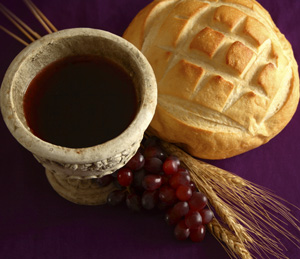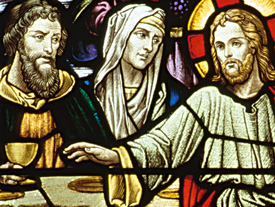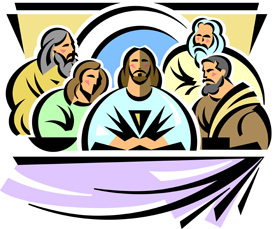Peter Bronson, a former columnist for The Cincinnati Enquirer, wrote an item for the opinion page that appeared in the paper on July 31, 2005. He entitled it, “Country-road Therapy Soothes the Soul.” In it he wrote, “I’ve heard of physical therapy, occupational therapy, water therapy, and music therapy. I prefer country-road therapy. The prescription is simple: Take a full tank of gas and a summer afternoon, and just drive until the billboards are replaced by barns and the skyscrapers turn into silos.”
“When I had a motorcycle,” he continued, “I spent hours exploring country roads. Mostly I found another world, a place where garish neon signs and strip malls were as rare as freeways, street crime, and traffic jams. It’s still there, just a few miles out of the city—a place where God’s bounty overflows the landscape.”
I enjoyed reading and reflecting on Bronson’s words because they brought to mind the area in south-central Indiana where I grew up and where I always enjoy returning. To get away from Cincinnati, where I live, and be able to migrate to the slower, less harried pace of country life can truly serve as a kind of “therapy.”
There’s another therapy we experience when we approach the time of Communion—Calvary-road therapy. This therapy doesn’t require a full tank of gas to experience. In most cases we take a small cup of juice and a small piece of bread and we go back in our mind’s eye to travel the road that our Savior traveled to Calvary. We get away from the pressures, burdens, and temptations of living in a world infested by sin. We pause at the “rest stop” that Communion provides and find renewed strength and perspective for a new week.
We also reflect on the burdens that Jesus carried to Calvary. First there was the burden of taking his own cross to the place of his execution. Then, once he was nailed to it, he experienced the real burden—dying for the sins of all humanity.
Carrie E. Breck described this so well in a hymn, “Nailed to the Cross,” that my home church (a “country-road” church) often sang:
They are nailed to the cross,
They are nailed to the cross,
O how much He was willing to bear!
With what anguish and loss Jesus went to the cross!
But He carried my sins with Him there.
However this decrepit, sin-cursed world has battered our souls in the past week, there is nothing that can’t be soothed by the right kind of therapy—Calvary-road therapy.
Doug Redford is professor of Old Testament at Cincinnati (Ohio) Christian University.
















